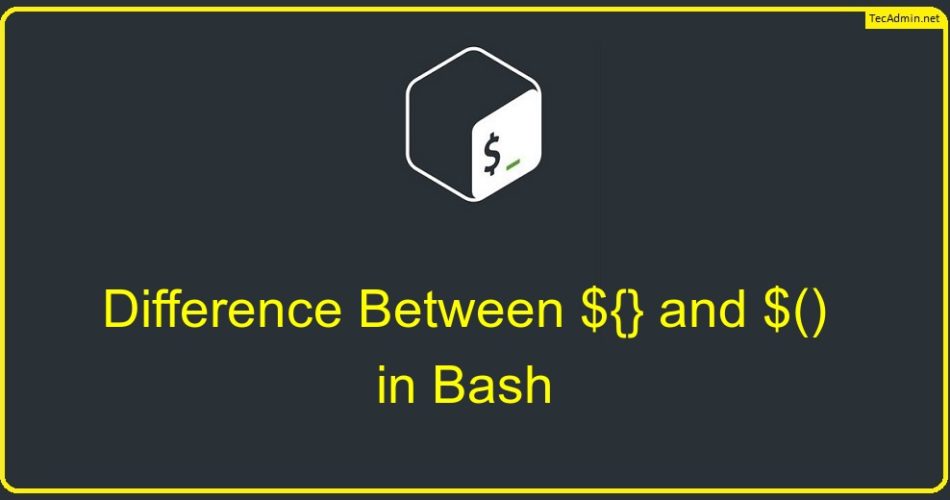Bash, short for Bourne-Again SHell, is a Unix shell that has gained immense popularity due to its powerful scripting capabilities. For those who work with Bash scripts, understanding the subtle differences between various syntax elements is crucial to create efficient and error-free scripts.
In this article, we will discuss the differences between the ${} and $() syntax in Bash and explore their various use cases.
The ${} Syntax: Parameter Expansion
The ${} syntax in Bash is used for parameter expansion. It is a way to manipulate and retrieve the value of a variable. The syntax consists of a dollar sign ($) followed by a pair of curly braces ({}) containing the variable name or an expression. Parameter expansion provides several operations, such as substring extraction, case modification, and more.
Examples of ${} usage:
- Simple variable expansion:
name=“John Doe”
echo ${name}
- Substring extraction:
name=“John Doe”
echo ${name:0:4}
- Default value assignment:
default_name=“John”
name=“”
echo ${name:–$default_name}
The $() Syntax: Command Substitution
The $() syntax in Bash is used for command substitution. It allows you to execute a command and substitute its output in place of the $() expression. This is useful when you want to use the output of a command as an argument for another command or assign it to a variable.
Examples of $() usage:
- Basic command substitution:
date=$(date)
echo “Today’s date is $date”
- Using command substitution in a loop:
for file in $(ls)
do
echo “Processing file: $file”
done
Comparing ${} and $()
Here are the key differences between ${} and $():
- Purpose: ${} is used for parameter expansion, allowing you to manipulate and retrieve the value of a variable. On the other hand, $() is used for command substitution, enabling you to execute a command and substitute its output.
- Syntax: ${} uses a pair of curly braces ({}) containing the variable name or an expression, whereas $() employs a pair of parentheses (()) containing the command to be executed.
- Usage: ${} is employed when you need to perform operations on variables, such as substring extraction or assigning default values. In contrast, $() is used when you want to execute a command and use its output in place of the expression.
Conclusion
Understanding the differences between the ${} and $() syntax in Bash is essential for creating effective scripts. While ${} is used for parameter expansion and variable manipulation, $() is utilized for command substitution, allowing the execution of commands and substitution of their output. Keep these differences in mind while crafting your Bash scripts to ensure their efficiency and accuracy.



